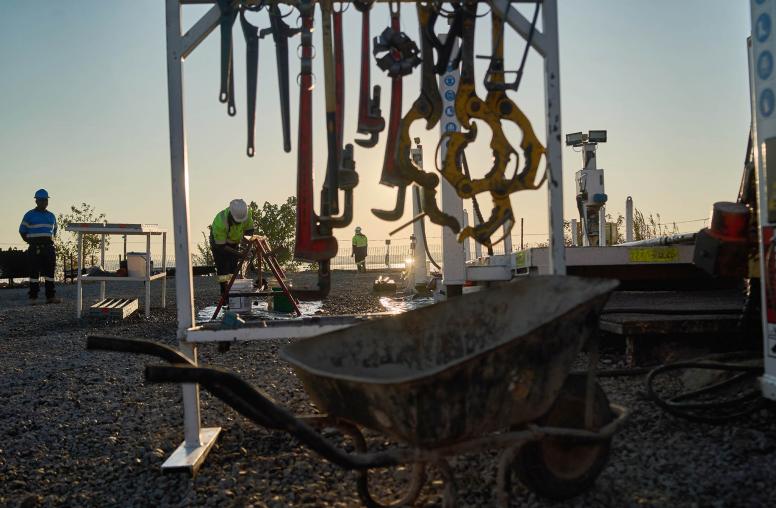Research & Analysis
U.S. Institute of Peace’s articles, reports, tools and other features provide policy analysis, research findings, and practitioner guides. These publications examine critical conflict issues at the center of the Institute’s work to prevent and resolve violent conflict.
The views expressed in these publications are those of the author(s).

The Lobito Corridor: A U.S. Bet on Africa’s Critical Mineral Development
Demand for critical minerals is expected to skyrocket in the decades ahead. These minerals — such as copper, cobalt and lithium, among others — power the electronics we use every day and are essential for transitioning to greener energy technologies. The U.S. is increasingly working with African partners to develop the continent’s abundant critical minerals, an effort that is vital to advancing U.S. economic and national security interests. It also will have major implications for African countries: How these critical minerals are developed will significantly impact the continent’s economic future and beyond, even affecting peace and stability. This increasing U.S. policy focus comes against the backdrop of intensifying U.S. geopolitical competition with China, which dominates many African mining sectors.

U.S. Plans to Build Africa’s Infrastructure Bring Opportunities, Challenges
An interesting trend is emerging in U.S.-Africa relations: even as the United States moves to counter Chinese influence in key sectors like critical minerals, China’s influence in Africa is subtly reshaping the United States’ own approach to engaging with the continent.

Thomas Sheehy on Vice President Kamala Harris’ Visit to Africa
Vice President Kamala Harris’ trip to Ghana, Zambia and Tanzania is further indication that “the U.S. is finally waking up” to opportunities in Africa, says USIP’s Thomas Sheehy. “Africans want choices, they don’t want to be dependent just on Chinese investment … they want the U.S. engaged.”

Four Takeaways from Treasury Secretary Yellen’s Trip to Africa
Treasury Secretary Janet L. Yellen’s recent 10-day trip to Africa kicks off a year of sustained, high-level U.S. engagement, aimed at demonstrating that the Biden administration is “all in on Africa, and all in with Africa” following December’s U.S.-Africa Leaders Summit. With trips from the president, vice president, and other cabinet secretaries in the works, this “super-charged” U.S. diplomacy is moving beyond the typical secretary of state visits. A close look at some of the issues encountered by Yellen on her trip demonstrates that showing up on the continent may be the easy part of going all in with Africa.

Zambia’s New Leadership and the Stakes for Africa
Weeks after his election to lead his southern African nation, Zambian President Hakainde Hichilema vowed to reverse his country’s recent erosion of democracy and good governance, and to stabilize an economy in recession—all despite the burdens of COVID, environmental shocks, and a dangerous “mountain” of debt accumulated in recent years.

Obama’s Africa Trip Seizes on Progress to Trumpet Economic Potential
President Barack Obama’s first extended trip to Africa will seize on democratic and economic progress in the three countries on his itinerary – Senegal, South Africa and Tanzania – to inspire further advances across the continent and encourage more American companies to plunge in.

Voting in Fear
In Voting in Fear, nine contributors offer pioneering work on the scope and nature of electoral violence in Africa; investigate the forms electoral violence takes; and analyze the factors that precipitate, reduce, and prevent violence. The book breaks new ground with findings from the only known dataset of electoral violence in sub-Saharan Africa, spanning 1990 to 2008. Specific case studies of electoral violence in countries such as Ghana, Kenya, and Nigeria provide the context to further un...

Elections and Conflict Management in Africa
Elections have emerged as one of the most important, and most contentious, features of political life on the African continent. In the first half of this decade, there were more than 20 national elections, serving largely as capstones of peace processes or transitions to democracies.